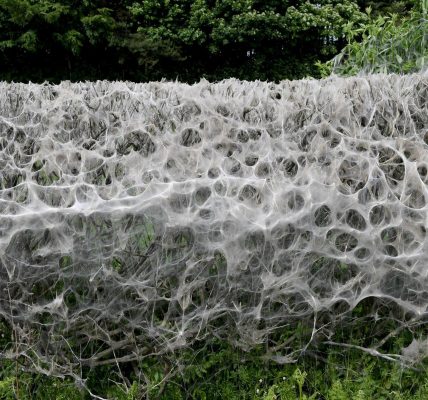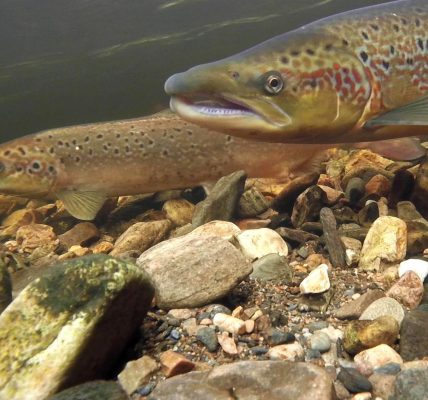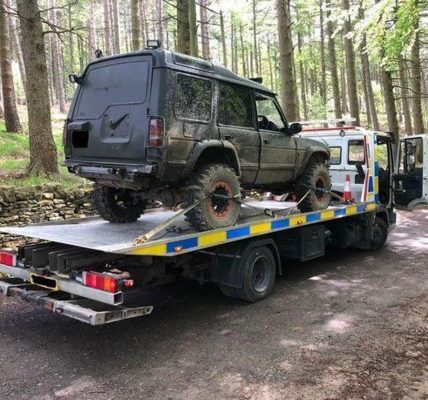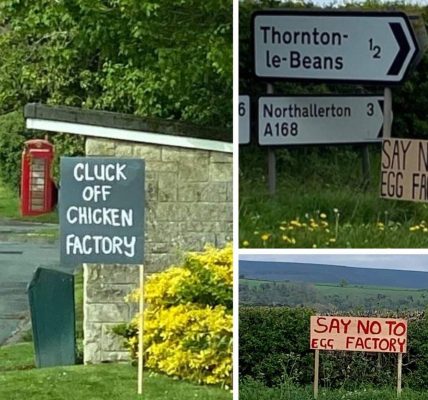Farm of the Week: A boarding kennels and dog hydrotherapy centre are the future in rural Harrogate
Farm of the Week: A boarding kennels and dog hydrotherapy centre are the future in rural Harrogate
Making hay while the sun shines and taking the lead are two activities that a young North US farmer believes are indicative of the way ahead for many other small family farms.
Glebe Farm at Spofforth runs to 75 acres owned by Gerald and Carolyn Heslop. It is a traditional mixed farm with arable land and a suckler herd of cattle, but it is their son Fred’s haymaking enterprise, the family’s kennels business that started over a decade ago, plus Fred’s brother William’s dog hydrotherapy centre that have proved successful diversifications.
Fred studied at Bishop Burton College, where he followed up his national diploma in agriculture with a degree in agricultural business resource management. Fred said that finding the right markets where an appropriate margin could be made were important for his family’s future.
“You’ve got to look for niches and better margins of making profit otherwise you can soon find yourself working an awful lot for not a great return.
“We grow 45 acres of arable crops with 25 acres of winter wheat this year and the rest down to mainly winter barley and a small amount of spring barley.
“Our land is largely light to medium loam over limestone. We have some very heavy land too, but the lighter land is what a friend once called ‘Boy’s Land’ as it is easy to work and free draining.
“The suckler herd is slightly reduced from the 23 cows at present as we had some that were past their best, but we will buy more in to get back to where we were. They are mainly Limousin-crosses with Red Polls, Angus, British Blues, which we bull with a Limousin-cross-Piemontese that looks like a monster Angus.
“We sell the calves as stores. Our bull calves go at six to eight months and the heifer calves at eleven to twelve months having calved the herd usually during February and March.”
While Glebe maintains its mixed farm status, Fred said it was his mum Carolyn’s idea of opening up a boarding kennels that has proved the winner in terms of a niche operation that has set the business on the right road.
“We have always had lots of dogs at home and for a few years before we set them up Mum said we should start a boarding kennels. We were licensed for 30 when we started, we are now licensed for 96. None of us thought it would take off the way it did.
“We’d only moved here in 2007 and we were still having the farmhouse built when Mum and Dad diverted the builders to putting up the kennels instead.
“Initially, when we were running it with just the family, my parents, myself, my brother and two sisters, we were all hands on deck. We had an amazing first summer and that led to taking on a member of staff. Now we have a full-time team of four or five and lots of dog walkers, as each dog is walked twice a day around a 10-acre field. Mum and Dad still do it every day.”
Fred’s niche market came about by starting to supply bales of hay to a couple of local people with horses around nine years ago. He soon realised that there was a bigger market to serve and that he could not just supply but also grow the grass to bale his own hay.
“We are pretty self-sufficient in everything we do in our farming life. We plough, drill, cultivate, spray and harvest our arable crops and when I’d come back from college and had bought a bit of hay to sell on at a profit it inspired me to find a bit of grass and make my own.
“I made 200 bales from 20 acres in my first year and I’m now making 1,000 round bales a year. My first cut is 75 acres and that’s why we now farm across around 150 acres, because of the hay business taking off. I now rent land all around Spofforth and within a few miles.”
Although Fred’s hay business continues to grow, it is the kennels enterprise that had become the principal money earner at Glebe until the pandemic restrictions began in March last year. Fred said they are still nowhere near returning to the numbers they attracted prior to the first lockdown.
“We closed for the first time ever, shortly after the first lockdown. We just didn’t have any dogs coming. We were closed for 12 weeks and all of the staff were on furlough. They’re all back now and they are a great team, but we are nowhere near we were or were we really ought to be. A good day for us at the moment is 40 dogs.
“People just aren’t going on holiday and certainly not abroad. Most are taking two or three-day breaks rather than a week or a fortnight.
“We pride ourselves on going above and beyond for all of our customers. The dogs are taken for good walks no matter what the weather, they are all fed properly and cleaned regularly. And with William’s physio hydrotherapy business we offer something different too.”
The farm is also in the mid-tier stewardship scheme and Fred has added a sideline in hedge cutting for local farmers.
Fred and his family are carrying on the Heslop dynasty in Spofforth that began when Fred’s grandfather Thomas moved to Crosper Farm after the Second World War. Fred’s father Gerald and Gerald’s brother Duke farmed together at Crosper until 15 years ago.
Fred said that although his grandfather died before he was born he was aware of his cattle showing prowess and the Red Polls in today’s herd are a nod to his grandfather’s days.
“I always wanted a couple of Red Polls because grandad showed them as pedigrees at the Great US Show.”
While the cattle numbers will be increased again shortly, it is other diversifications where Fred believes the farm’s future will be assured, including one yet to start.
“We will make an increasing amount of hay and the kennels will gradually get back to where we were. I’m also considering becoming a shooting instructor.”










